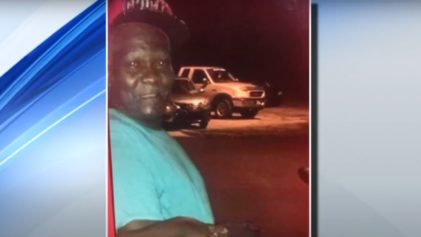
The LAPD is an agency plagued with a history of racially charged instances of police brutality, so such a move could go far in transforming the department’s reputation—and moving other departments across the country to match the LAPD.
“This is a huge step for law enforcement,” said Police Chief Charlie Beck. “No other major city is even close to implementation.”
While the push for body cameras is a conversation that is being held nationwide, many eyes are on agencies like the LAPD, the New York Police Department, the Cleveland Police Department and departments all around the St. Louis area in Missouri where cases of unarmed Black men being fatally shot by officers have sparked protests across the globe.
Some protesters say a national law requiring all agencies to have body cameras should be deemed the Michael Brown Law, in honor of the unarmed 18-year-old who was fatally shot by Ferguson, Missouri, police officer Darren Wilson.
Eye witness testimonies often conflicted with one another and investigators say the forensic evidence didn’t match some of the accounts as well.
The lack of clarification about what exactly happened during that fateful encounter has sparked outrage because many say that lack of clarity alone should have been enough for officer Wilson to stand trial.
The presence of police body cameras won’t put an end to the killing of unarmed Black residents by police officers, nor will it promise an indictment against the officers, as many have seen in the Eric Garner and Tamir Rice cases, which were both captured on videotape. But it could help put an end to the uncertainty that often surrounds these cases.

Specific guidelines and regulations for the use of the body cameras have not been made just yet but the key issues to be addressed are the consequences that officers will face if they turn off the cameras while out in the field and whether or not they will be allowed to review the footage after being accused of using excessive force.
The implementation of body cameras will also come with a hefty price tag.
Los Angeles police commission President Steve Soboroff said the cameras would cost around $10 million for the first two or three years.
The National Institute of Justice has given the department a $1 million grant to help with the costs.
The LAPD has a troubling history when it comes to violence and excessive use of force against people of color.
Just recently a report revealed that the number of Black and Latino residents being bitten by police dogs was exceptionally high and in 2012 officers fatally shot a Black teen who was in handcuffs and then tried to sweep the killing under the rug.
Around the same time officers also stomped on a Black woman’s genitals and then forcefully shoved her into the backseat of their vehicle before she died and left behind two children.
The Department of Justice has already found the LAPD guilty of targeting Blacks and Latinos in the community after reports of disproportionately high stops and seizures of people of color were brought to the department’s attention.
The announcement of the body cameras in this agency will certainly make it a leader in the push for cameras in all agencies. Whether or not the rest of the nation sees any improvements in the Los Angeles’ police force after the camera are implemented could determine if the President’s suggestion to spend more than $70 million on police body cameras across the nation will be justified.


